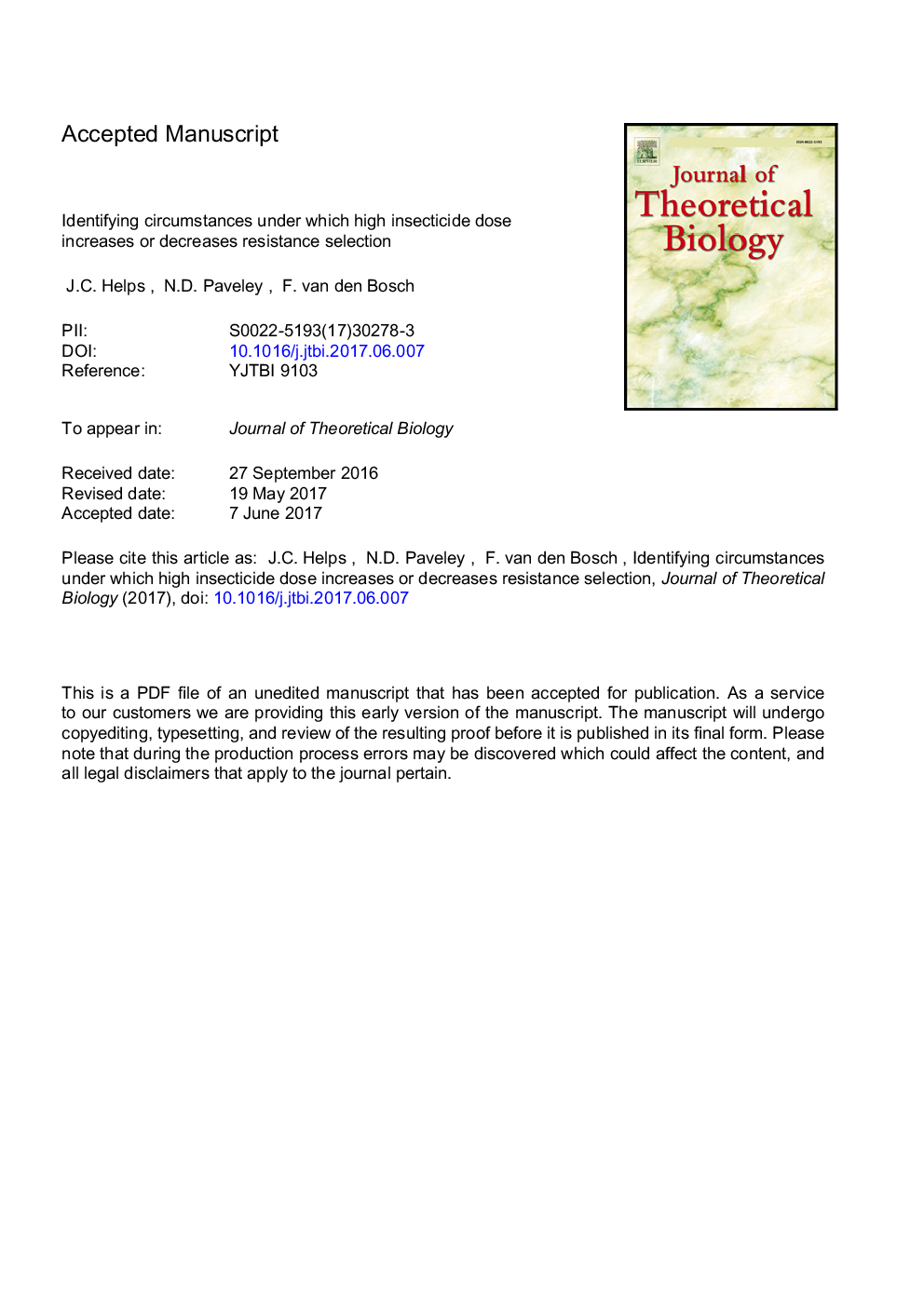| Article ID | Journal | Published Year | Pages | File Type |
|---|---|---|---|---|
| 5760011 | Journal of Theoretical Biology | 2017 | 38 Pages |
Abstract
It is demonstrated that with high immigration resistance can be suppressed. This suppression however, is rarely lost if the insecticide dose is reduced, and is absent altogether when individuals move from the treated population back into an untreated population. Reducing the dose of insecticide often resulted in slower development of resistance, except where the population combined a high influx of less resistant individuals into the treated population, a recessive resistance gene and a high efficacy, in which case reducing the dose of insecticide could result in faster selection for resistance.
Related Topics
Life Sciences
Agricultural and Biological Sciences
Agricultural and Biological Sciences (General)
Authors
J.C. Helps, N.D. Paveley, F. van den Bosch,
